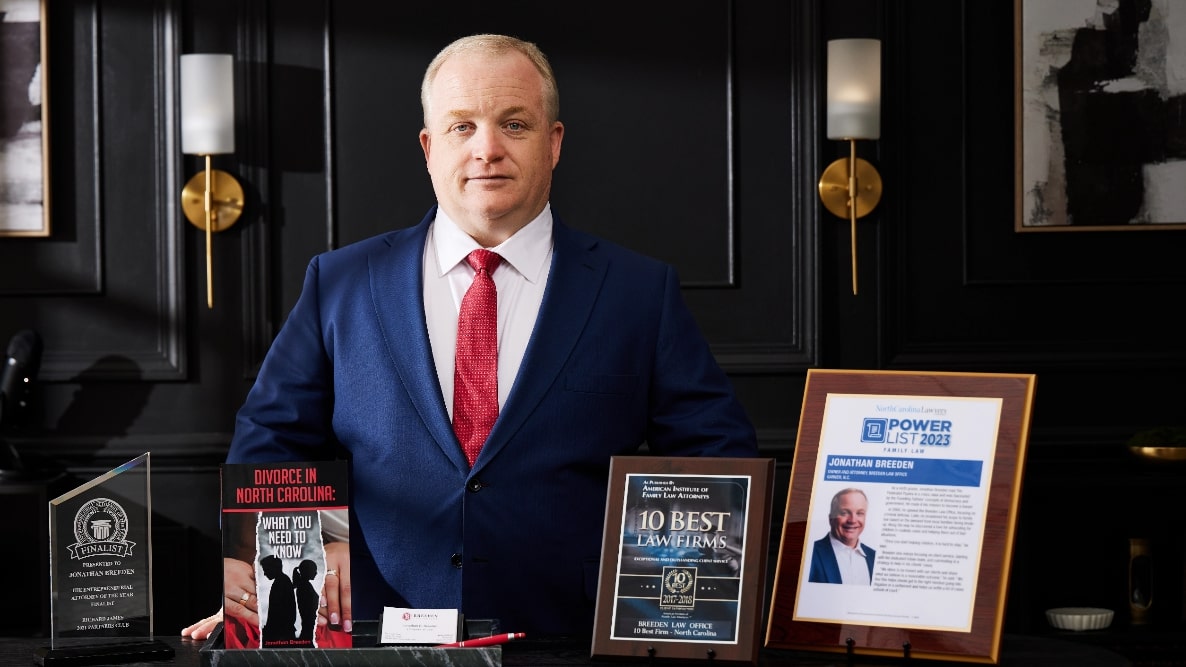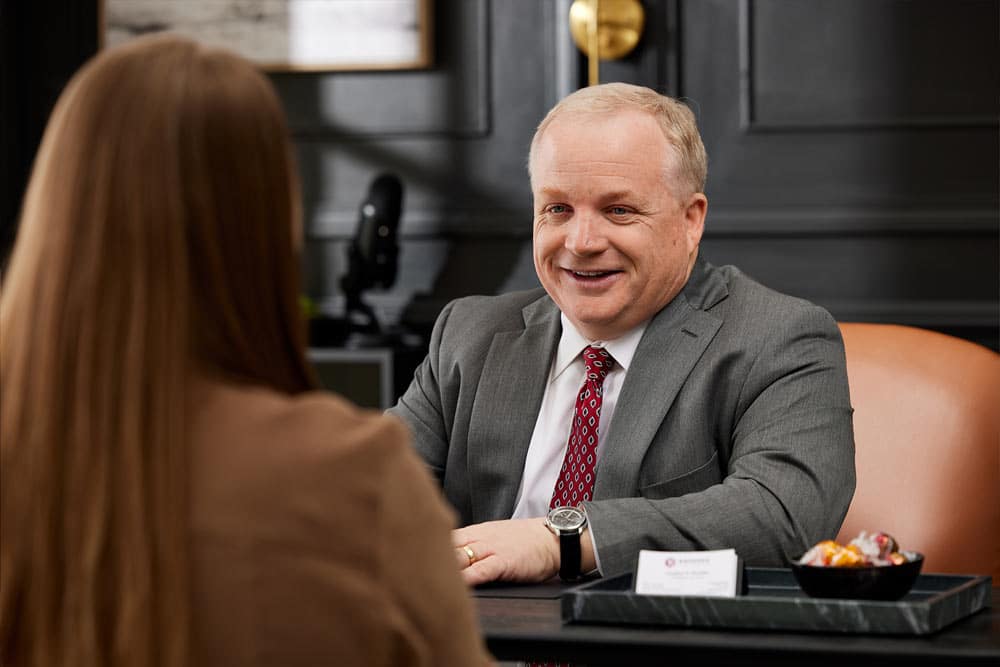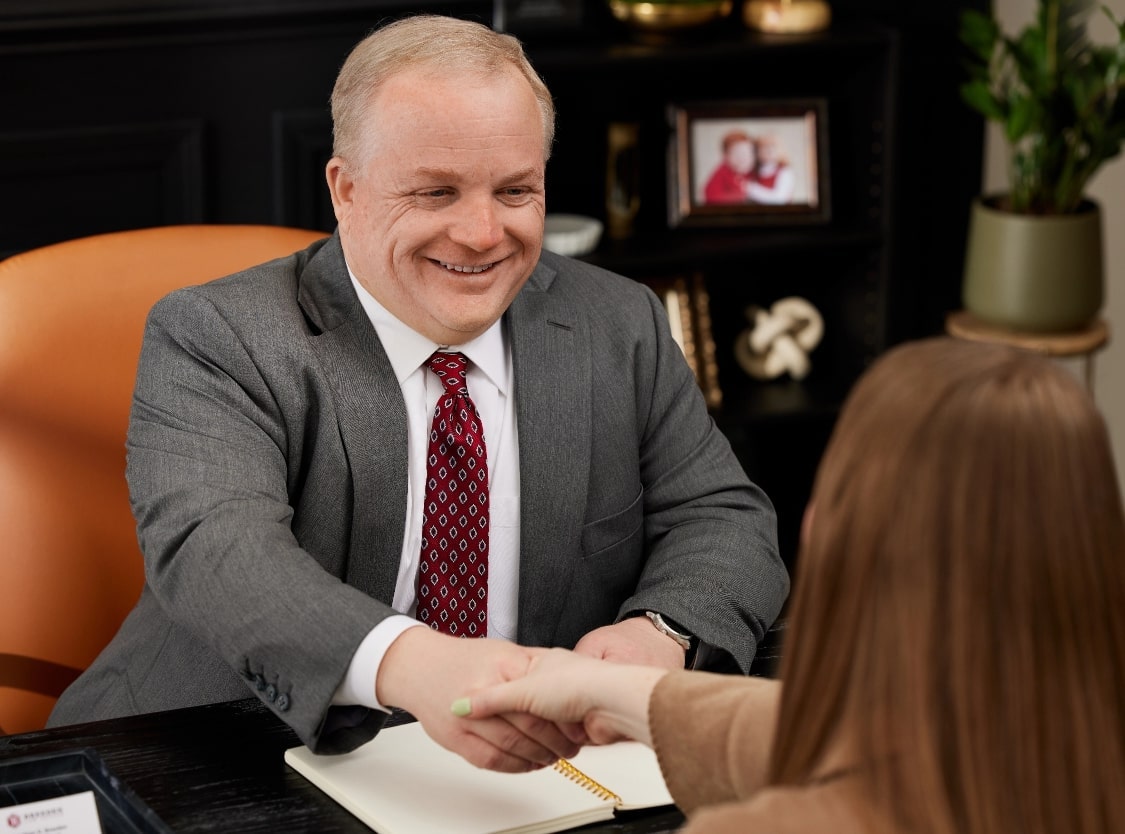Hear from Our Clients
Wake County Guardianship Attorneys with Breeden Law
When someone needs assistance with decision-making, money management, and other critical aspects of their lives, your best option is to work with someone with local knowledge and considerable legal experience. A guardianship attorney in the Raleigh area with the Breeden Law Office can help you navigate the Wake County guardianship process, which can be complex and full of challenges.
Cary, NC family lawyer Jonathan Breeden has represented clients and their loved ones for over 25 years. He has helped many families in Cary and the surrounding areas with the most complex and straightforward guardianship issues and would be happy to help find a solution for you.
More About Breeden Law OfficeHow to Move Guardianship Between States

Once you’ve established guardianship, it’s possible to move to another state. We can ensure that you and your ward don’t experience undue difficulty throughout this process.
WHY CHOOSE BREEDEN LAW OFFICE:
25
+Years of Experience
4
+Office Locations
20
+Attorneys and Staff Members
1,000
+Clients Served
300
+5-Star Reviews
Contact Breeden Law Office
"*" indicates required fields
Need Help With Your Guardianship Matter?
WE FIGHT FOR YOUR FAMILY FOR THE BEST OUTCOME POSSIBLE
Becoming someone’s guardian, whether they’re a child or an adult, is a move that ensures they are properly cared for and that they’re protected from unexpected problems that independence can throw their way. We can ensure your needs are met and that everyone involved is safe.
- HUNDREDS OF SATISFIED CLIENTS
- A+ BBB RATING
- TOP 10 BEST LAW FIRM — EXPERTISE.COM
What is Guardianship in North Carolina?
Legal guardianship describes the process of obtaining court approval to act on behalf of another individual for certain types of decision-making. Under North Carolina’s guardianship laws (NCGS 35A), a ward is an individual who has some condition that incapacitates them. A guardian is the person, corporation, or public agent who makes decisions regarding the ward’s financial and/or personal matters.
What is Child Guardianship in Cary?
Children under the age of 18 are legally unable to act and make decisions in many situations. Appointing a guardian is necessary to handle specific legal issues until the ward reaches age 18.
There are two particular considerations in child guardianship cases:
- A court will only appoint an adult as general guardian over a child if the biological parents have passed away or had their parental rights terminated.
- Guardianship may be temporary. There would be no need for guardianship when a legally competent child turns 18. Some adults may only suffer incapacity for a certain amount of time. A ward’s rights can be restored in these situations and others.
To become the guardian of a minor, you must complete an Application for Appointment to become either the guardian of the estate, guardian of the person, or general guardian for a minor. This form must be filed with the estate division of the Clerk of Superior Court of Wake County.
Understanding Adult Guardianship in Wake County
Guardianship of an adult may also be issued if an adult is deemed incompetent. In these situations, the Clerk of the Superior Court may authorize an appointed guardian to be a substitute decision-maker for the adult.
The Wake County Adult Guardianship Program provides services in Cary and throughout Wake County. The program may advocate in the person’s best interests and provide an annual assessment of the individual’s continued need for guardianship. If you have further questions or are looking for assistance through this process, contact an adult guardianship lawyer from Breeden Law Office.
What are the Types of Guardianship in Cary, NC?
There are three forms of legal guardianship in North Carolina over minors or adults.
- Guardianship Over the Person – The guardian is in charge of making medical, educational, and housing decisions for the ward. As a personal guardian, you would handle living arrangements, schooling, healthcare, and related matters.
- Guardianship Over the Estate – A court may appoint an estate guardian to manage the ward’s finances, assets, and investments.
- General Guardianship – The personal guardian and estate guardian are only empowered to handle tasks within their respective roles. But it may be convenient to have the same person manage both. When appropriate, a judge may appoint a general guardian to care for both financial and personal matters.
Who Can Become a Guardian in Cary?
Like the rest of the state, a guardian may be a person, company, or public agent, depending on the situation and needs to be met. Also, more than one guardian may be appointed to a single ward.
For example, if it is in the ward’s best interests, a medical professional may have approval by the court to make medical decisions. A financial advisor may be appointed to handle extensive investments and assets.
What Does a Guardian Do?
A guardian must make decisions that align with what you would do when managing your affairs. They must do what is in the best interests of the ward.
A personal guardian may be required to:
- Make appointments for the ward with healthcare providers
- Keep track of prescriptions and administer medications
- Approve medical care recommended by a physician
- Place the ward in appropriate accommodations or assisted living arrangements
- Arrange home care, if appropriate
- Mange school and educational opportunities for the ward
An estate guardian may be required to:
- Monitor assets owned by the ward, including bank accounts, investments, real estate, and other property
- Make responsible decisions about investments so that the ward has income for personal care and well-being
- Handle filings for public benefits that the ward may be entitled to receive, such as Social Security Disability Insurance and programs offered through the Wake County Government and State of North Carolina
General guardians would be responsible for all of the tasks required by personal and estate guardians.
How Do You Prove Incompetency in Guardianship Cases?
When seeking to become the guardian of an adult in or around Cary, NC, you must prove that they are incompetent to handle their own matters. This can be challenging, as family members and the potential ward may resist.
You will have to present evidence and testimony to the court, showing that the person cannot take care of financial matters and medical needs independently. This may require medical exams and other professional records.
It’s best to work with a Cary guardianship lawyer who understands what a Wake County judge needs to see to find someone incompetent. Attorney Jonathan Breeden has successfully navigated many incompetency hearings in the area, and he can do the same for you.
What’s a Guardian ad Litem?
A potential ward in North Carolina has a right to a lawyer and a Wake County guardian ad litem. Guardian ad litem is considered the court’s eyes and ears concerning the minor or allegedly incompetent adult. The court may appoint them.
Guardian ad litem may interview the potential ward and people in their lives, including teachers, medical providers, parents, friends, and family members. They will also observe the ward at home and taking care of personal and financial matters. They will then report their findings to the judge.
The Wake County Guardian ad Litem Program provides court-appointed advocates for abused and neglected children who come to the attention of the Wake County court system. These cases may result in children being placed in foster care or a guardian being appointed.
What is the Process to Become a Guardian in Wake County?
To become a guardian in Cary, you must go through the Wake County court process. Your attorney can help guide you through each of these steps and ensure you don’t miss any crucial deadlines or filings:
- Petition the Court: The person seeking guardianship must apply to the Wake County Superior Court, located at 316 Fayetteville St. Mall in Raleigh, NC. Their phone number is 919-791-4000. The application should contain information about the applicant, situation, and a basic inventory of property and assets that may be involved.
- Take an Oath: Guardians in North Carolina must take an oath to fulfill their duties under the law. Guardians have tremendous power, so their oaths are an essential legal statement to use their power to benefit their wards.
- Post a Bond: Guardians must post bonds with the Wake County Superior Court. The amount depends on the nature of the guardianship and the complexity of the situation. The clerk may reduce the bond in certain situations.
- Obtain an Order: The clerk will authorize the guardianship and generate documentation for the guardian.
- Obtain Letters of Guardianship: The clerk will provide letters of guardianship, which act as legal proof of guardianship. The guardian can then begin activities to benefit the ward.
If the guardianship is challenged, there may be other hearings and an investigation that takes place.
Preparing for Incapacity in Cary, NC
The process of becoming a guardian can be time-consuming and expensive. However, there are ways you can prevent the necessity of guardianship proceedings. If you plan ahead so that family members and loved ones are prepared, you can establish your own directives.
Durable (Financial) Power of Attorney – This allows someone else to handle your finances, investments, real estate, and personal property if you become unable to handle it on your own.
Health Care Power of Attorney – This makes another person an agent on your behalf if you become unable to make medical decisions independently.


FAQs about Guardianship in North Carolina
Can a guardianship in Wake County be modified or terminated later on?
Yes. Guardianship arrangements can be changed if the ward’s circumstances improve or if the guardian is no longer able or suitable to serve. A court must approve any changes, including replacing a guardian or restoring a ward’s rights if they regain capacity. Working with a guardianship attorney can help you petition for modifications.
Is court approval always required to become a guardian in North Carolina?
Yes. Whether the guardianship is for a minor or an adult, the Wake County Clerk of Superior Court must review the application, ensure legal requirements are met, and formally appoint the guardian. Skipping this step can result in the guardian having no legal authority to act.
What’s the difference between guardianship and power of attorney in North Carolina?
Power of attorney is a legal tool someone voluntarily grants while they are still competent, allowing another person to make decisions on their behalf. Guardianship, on the other hand, is court-ordered and typically only pursued when someone is no longer able to make decisions themselves and has not established a power of attorney.
What happens if multiple people want to be the guardian of the same person?
If more than one person petitions for guardianship, the court will evaluate who is best suited based on the ward’s needs, the petitioner’s relationship to the ward, and their ability to serve. The judge may appoint co-guardians or select one over the other. Legal representation is helpful in contested cases.
Are there alternatives to guardianship for adults in North Carolina?
Yes. If the adult still has some decision-making capacity, less restrictive alternatives like supported decision-making agreements, health care proxies, or limited guardianship may be more appropriate. An attorney can help assess whether a full guardianship is necessary.
Get Help With Your Guardianship Needs in Cary Today
Navigating the guardianship process can feel overwhelming, but you don’t have to go through it alone. With over 25 years of experience, Cary guardianship lawyer Jonathan Breeden and his team at Breeden Law Office are here to guide you every step of the way. Whether you’re dealing with complex guardianship issues or simply seeking advice, we’re ready to help.
Contact the Breeden Law Office
YOUR FAMILY NEEDS ITS HERO. WE FIGHT TO MAKE IT YOU.
- Over Two Decades Protecting Families in NC
- Client & Child-First Focus
- Relentless Advocacy
- Guiding Your Next Chapter
CALL US TO GET STARTED
“Jonathan and his team are amazing! Not only did he help win my case, he made me and my family feel like we were part of his.”


